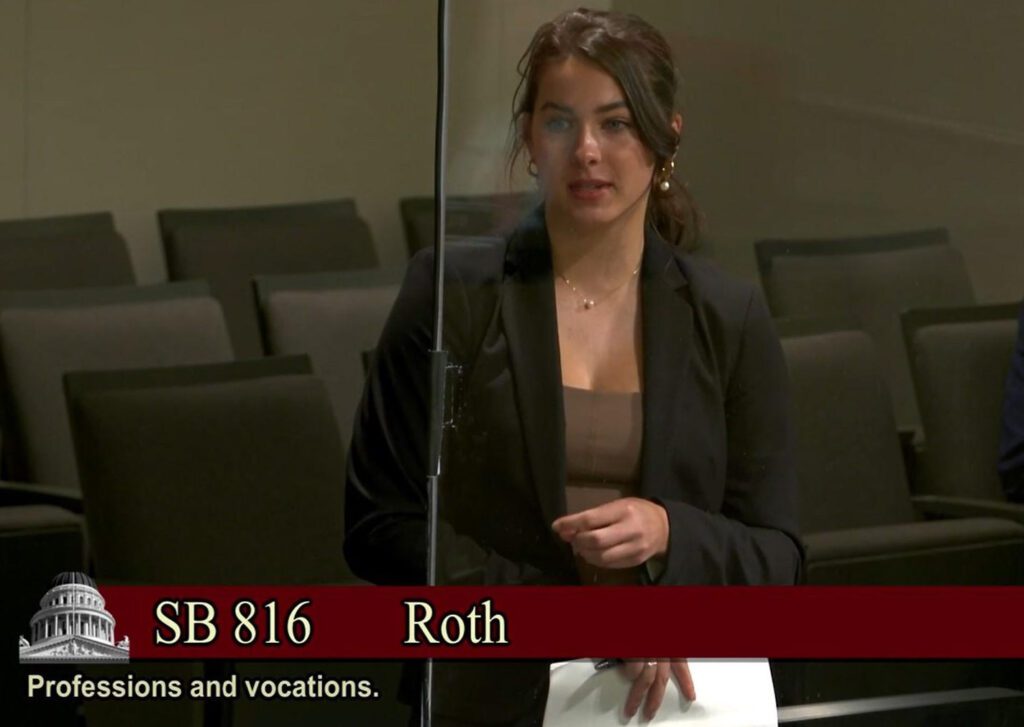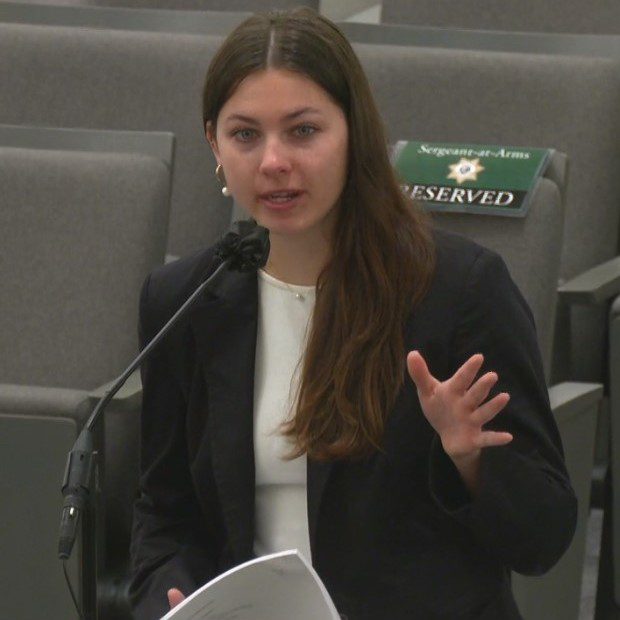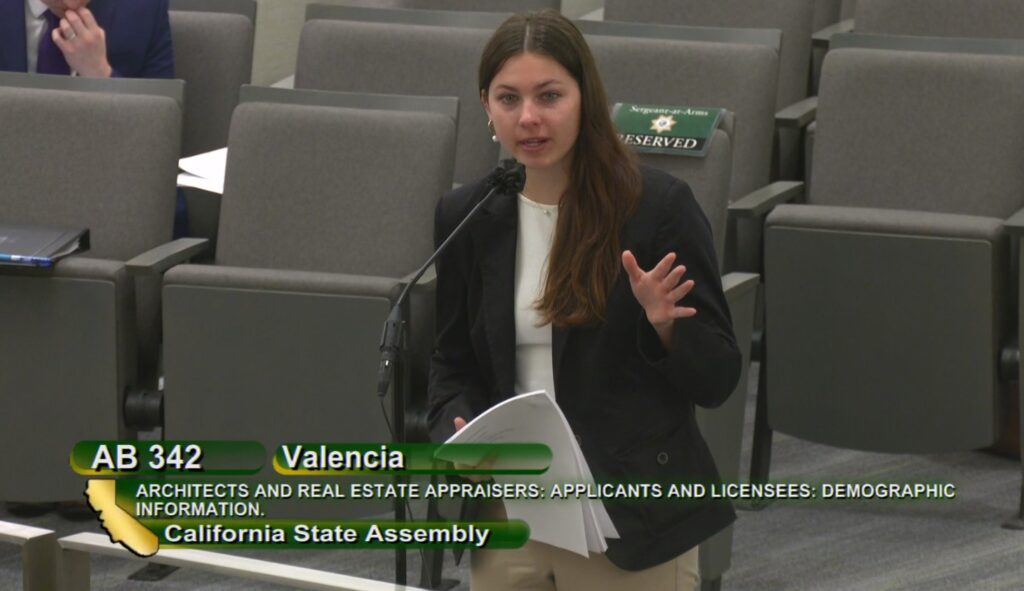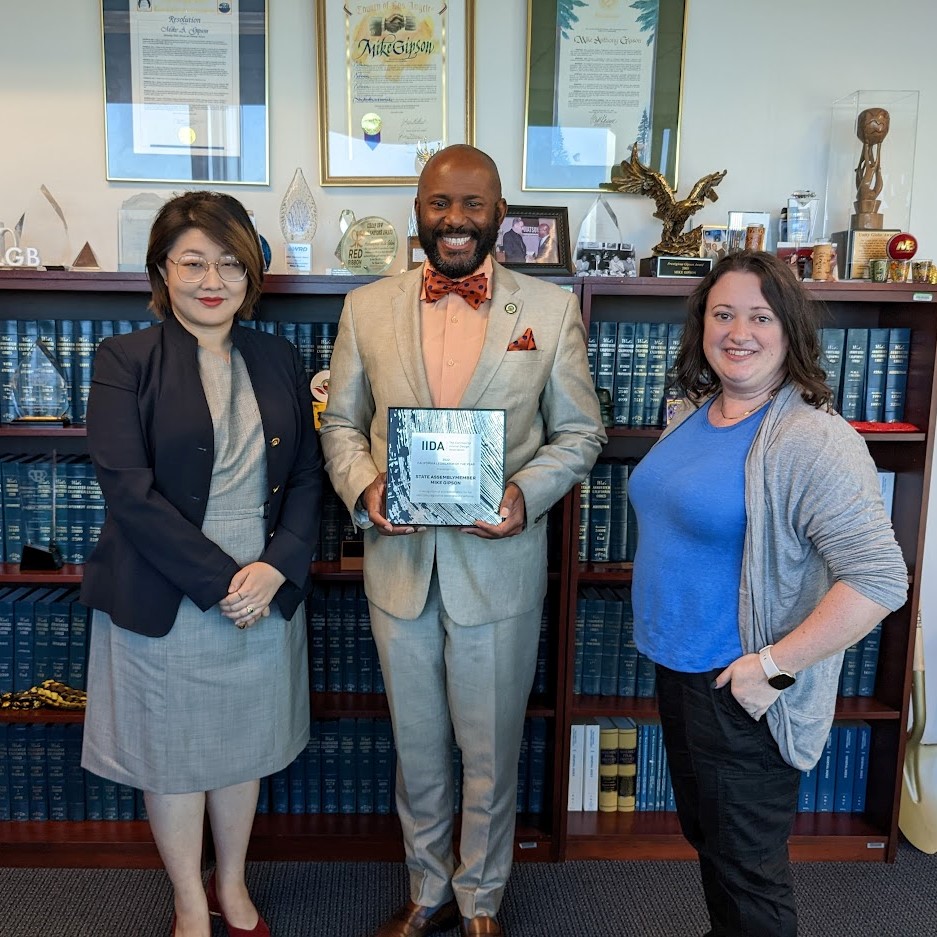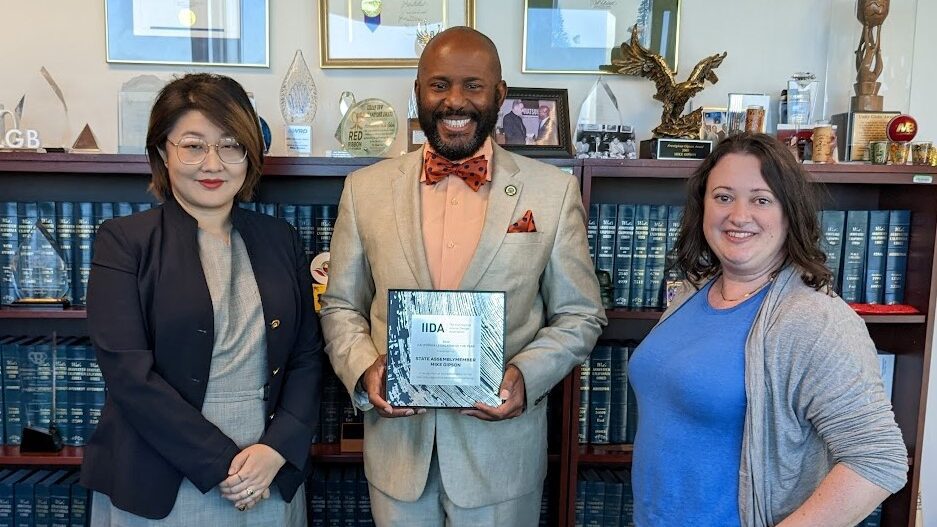Spotlight on 3 IIDA Northern California Members
This month of May, we celebrate Asian American and Pacific Islander (AAPI) Heritage Month. At IIDA Northern California, we take this opportunity to recognize our members and honor the contributions of AAPI designers and their impact on the field of interior design. From their unique perspectives and approaches to design to their diverse cultural influences and experiences, AAPI designers continue to inspire and shape the industry. This month, we highlight IIDA Northern California members of the AAPI community to celebrate their heritage and meaningful contributions to the design world.

Christina Cho Yoo, AIA, PE, LEED AP BD+C
Co-Founder | Atelier Cho Thompson
Christina’s career trajectory significantly shifted from structural engineering to architecture, driven by her desire to combine technical expertise with a deeper involvement in projects’ creative vision and human experience. Before this transition, she excelled as a structural engineer at Arup, where she held the esteemed position of Structural Sustainability Champion for the Americas. Her exceptional contributions encompassed noteworthy projects such as the LEED-Double Platinum California Academy of Sciences, Contemporary Jewish Museum, Kaiser hospitals, and various bridges.
In 2014, Christina and her partner Ming Thompson established Atelier Cho Thompson—a multidisciplinary design and concept firm with offices in San Francisco and New Haven. This dynamic firm engages in the art of architecture, interiors, graphics, brand strategy, furniture, installations, and exhibitions. Their diverse portfolio spans from single-family residences to hospitality venues, institutions, offices, cultural landmarks, and public spaces. Christina and Ming are driven by a profound passion for design that brings about lasting change and resonates with individuals from all walks of life.
Furthermore, Christina’s commitment to community-building extends beyond her professional pursuits. Last year, she co-founded A Rising Tide, an initiative dedicated to cultivating leadership and increasing the visibility of Asian and Pacific Islanders working in design for the built environment. This endeavor highlights her dedication to fostering inclusivity and empowering underrepresented voices within the industry.
While Christina and Ming are trained architects who have worked on large and complex buildings like international Apple stores and museums like the California Academy of Sciences, they joined IIDA because they believed that design at the human scale is essential.
EDUCATION
- Bachelor of Science, Civil Engineering, Stanford University
- Master of Science, Design-Construction Integration, Stanford University
- Masters or Architecture, Harvard Graduate School of Design

Ravi Rao, LEED AP
Associate | Lead Interior Designer | Taylor Design
With over 18 years of experience in the field, Ravi Rao profoundly understands the importance of empathy in creating meaningful spaces. As an Associate and Lead Interior Designer at Taylor Design, Ravi’s approach revolves around a thoughtful and human-centered process, recognizing that design goes beyond aesthetics and encompasses the user’s mental and emotional experience. This perspective is particularly crucial in his work on healthcare projects, where design can significantly impact healing.
In addition to his innate empathy in design, Ravi embraces a distinctive leadership style that encompasses reflection, compassion, and a global mindset, all while prioritizing the team. Often described as a “quiet leader,” Ravi’s natural curiosity and ability to delve beneath the surface bring stability and purpose to the intricate intersection of people and space.
Ravi’s journey into the design world traces back to a young age when he felt a deep calling toward the designer role. Although initially unnamed, this passion was nurtured by his family and friends. Eventually, his curiosity led him to pursue architecture school and enter the realm of architecture and interior design. However, only recently did Ravi discover the perfect fit for his talents, thanks to someone who recognized his potential before he did. Reflecting on his own experiences, Ravi emphasizes the significance of looking out for those around us within our community and helping them reach their full potential. He attributes his growth and success to the guidance of mentors who played a vital role in shaping his career trajectory.
EDUCATION
- Bachelor of Architecture, Iowa State University
- MBA Design Strategy – Design, Business Administration, Management & Operations, California College of the Arts, California College of the Arts

Vismaya Koni
Interior Designer | FENNIE+MEHL Architects
Vismaya’s passion for art and design ignited at a young age, leading her to pursue a degree in Architecture for her undergraduate studies. Growing up, her father worked in the wood and millwork industry, exposing her to his work with architects and artisans. She watched various forms of design through his work in the built environment and the details he worked on with skilled woodworkers. These experiences grew her curiosity about design and her appreciation for the craft.
Her desire to delve deeper into interiors motivated her to pursue a Master’s in Interior Architecture. With a strong focus on user experience and sustainable design practices, Vismaya is dedicated to contributing thoughtful and meaningful work. Her comprehensive background in Architecture and Interior Architecture and her expertise in designing for diverse cultural contexts allow her to bring a unique perspective to her projects.
Beyond her professional pursuits, Vismaya finds joy in various activities. She embraces the opportunity to travel, nurtures her digital art skills, and constantly explores the evolving forms of design. These experiences not only broaden her creative horizons but also shape her approach to design, infusing it with fresh ideas and inspiration.
Throughout her educational journey, Vismaya discovered the immense value of her involvement with IIDA. From attending events and competitions to accessing valuable resources, IIDA has played a significant role in her growth as a designer. It has allowed her to connect with the local design community and comprehensively understand the collective work required to drive the industry forward.
Vismaya offers a valuable piece of advice to fellow professionals she received: to enjoy the creative process and remember how amazing it is to be able to do creative work every day.
EDUCATION
- Bachelor of Architecture, Dayanand Sagar Institute of Technology, Bangalore, India.
- MA Interior Architecture, Suffolk University, Boston, MA.



